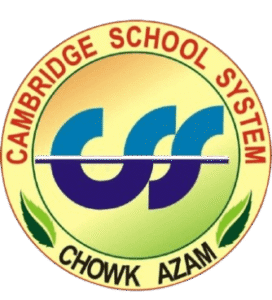Knowledge Empowers Life
Education generally covers a range of institutional activities from the transmission of knowledge through a variety of channels like informal home life interactions Knowledge Empowers Life literature periodicals radio cinema and formal schooling Annunzio 1939. It is still an irrefutable fact that education has a significant effect on the physical mental psychological and social growth of human beings acting as a cornerstone for national progress. Countries gifted with strong education systems tend to be among global socioeconomic leaders. Every nation molds its future generations according to its norms and teachings passing on its heritage through education.
Education structures are Learning empowers different internationally determined by variables like age criteria educational length and levels. The South Asian continent experiences marked inequalities in the sector of education acknowledging the close relationship between education and life chances. Historically the powerful sections of society excluded other groups from access to education highlighting education critical role in reducing economic inequalities. Worth mentioning Education for empowerment is the glaring educational gender divide.
Education Landscape in Pakistan An Overlooked and Diverse Realm
Since its very outset education in Pakistan has never been a priority area of concern for either military or civilian governments. Alleviation of the education Lifelong empowerment sector in Pakistan has been very meager amounting to less than 2.4% of the GDP. Therefore, Pakistan has the lowest literacy rate and poor educational standard compared to its neighboring countries, especially India. The Pakistani education system except for the government neglect has been affected by issues like multilingualism Cambridge school system policy inconsistency experimentation and the hierarchical nature of the system. The effects of these problems that appear in Pakistan are poor economic political and social growth.
The government operated education system does not properly cater to needs of society because of its perceived mismanagement lack of funding and improper evaluation. Concerns over the quality of
teaching and learning within government institutions resound within society Government of Punjab 2002. Unfortunately the Empowering minds, transforming lives situation is showing no signs of altering. Successive governments have tried to improve schooling and quality education according to national and international standards but these efforts have produced little positive result.
This unsettling situation predicts a looming breakdown within the education system Ashraf 1983. The education system is battling a range of challenges.
Configuration of Pakistan Education System
Pakistan school system is Knowledge-driven success divided into three main segments primary education grades 1 to 5 followed by middle education grades 6 to 8 and then secondary education grades 9 to 12. After grade 12 the path leads into higher education. The primary and secondary divisions lead to primary and secondary schools. Secondary education grades 9 to 12 is organized in secondary and higher secondary schools commonly known as colleges.
The bachelor course lasts for 2 Empowered by knowledge, Learning for life, Transformative learning, Enlightened education, Education that transforms, to 4 years whereas Post graduation the master course takes two years. After the master level there are M. Phil courses for a span of two years leading to Ph.D. studies. In particular areas like medicine the program lasts 5 years and engineering programs are for 4 years upon completion of grade 12.
Challenges
Education a central element that is shaping mental physical ideological and moral development enables individuals to realize life purpose and attain material requirements. But its importance has been misrepresented by Pakistan governments and policy makers since its beginning. Policy was frequently motivated by biased views or one’s agenda thus creating a divide in education on socio-economic lines.
The standard of education has deteriorated due to inefficiency mismanagement favoritism nepotism and corruption. The existence of imitative Nurturing empowered citizens salary accounts isolated schools in isolated regions and idle structures highlights the corruption inherent within the education sector Ahmad P. D 2012.Another issue facing the education sector is the dominance of various mediums of instruction.
Ever since Pakistan inception, the upper class preferred English Medium schools and the middle class prefers Urdu Medium schools and the lower class tends to use free madrassas.
This is causing an inequality in career prospects as English Medium students find easily well paying jobs. This disparity goes against the constitutional promise of equality between citizens. Additionally the very high fee of elite schools denies access to the middle class. The state sponsored education system because of mismanagement and negligence grapples with provinces insufficiently developing their school systems and teachers suffering neglect Rehman 2004. Education quality in Pakistan is declining because Education meets purpose of unresolved issues of language obsolete teaching practices and the inability to meet changing societal challenges.
Statement of the problem
In the contemporary education system, there is a lack of uniformity in promoting unity of the nation among citizens, and this has created various systems of education that produce people with differing perspectives on ethics and ideologies. India’s lackluster educational advancements are caused by its caste system that forces children from lower classes to engage in labor rather than focusing on education and thereby exacerbating castes.
This attitude reinforces the notion that part of the Empowerment through holistic learning population must not be educated to cater to the educated class Weiner & Noman 1996. In Pakistan, the feudalistic system is a huge barrier in the development of primary education. A system of caste has developed within the nation in the guise of a divide between the students attending English medium schools and those at Urdu medium schools.
Students who go to medium English schools commonly belonging to the upper class are superior and manage to get higher status jobs like clearing CSS exams. Such a gap does not allow a complete analysis of the issues of students who go to Urdu medium schools like Atchison and Burn Hall Khan A. H 1997.
Access to broader school level information throughout Pakistan is still limited and difficult to spread to masses. The ineffectiveness of Character and knowledge, Knowledge and values for life, Confident, empowered individuals, Life-ready learners, Holistic empowerment, strategies put in place and the failure to accomplish objectives also become matters of inquiry. This research therefore seeks to identify the causes of such failures. The study will make reference to public opinion and theoretical frameworks in the education field to illuminate these issues.
Significance of the Research
A matter within the scope of sociology becomes significant when it impacts society naturally gaining sociological importance. In the context School of Pakistani education the formation of clear societal strata establishes reactions that affect politics economics social life and knowledge paths. This multifaceted interaction presents challenges to the functioning and progress of society. On the path to development extensive formal schooling makes up the first step. Being an integral component of the education system the viewpoints of experts and students carry substantial weight as they both experience the system consequences firsthand.
Furthermore considering the prevalent education system in Pakistan these stakeholders may offer insights into why the country progress in the education sector is sluggish. Given the dynamic nature of studying a system its impractical to confine the study to a fixed timeframe. Thus, in order to gain an in-depth understanding of the workings of the education system itself a study is carried out from its foundational stage with the emphasis on an institutional basis. (Roles of Education) It is stated by Noll J.
William 2006 in the book Flexible, empowering curriculum Taking Sides Contrasting Perspectives on Controversial Educational Issues that historical facts highlight the longtime focus of education on character building. The teaching of moral education is of utmost importance. A learned mind without ethics may create an agitating society. In today’s era because deteriorating family relationships the moral education of human beings is important in order to maintain human dignity protecting their rights and resisting unfavorable tendencies among young people.
Character and morality-based education takes a central role. Along the same line Rao D.T 2000 in the book Education and Morality in India holds that the primary function of education is to enable the actualization of one genuine human potential. The central aim is the nurturing of character. Education cultivates the interplay between individuals human society and the environment. Disregarding the teaching and practice of moral and spiritual values among the younger generation would be harmful.
The exclusion of values in state education policies leads to the development of stressed youth in schools. In society morality is the foundation of life and education a tool that is society-directed towards this aim. Education cements the existing moral framework in society.
Concerns and Dilemmas in Pakistan
2002 in the book Basic Education Ensuring Every Child Right elaborates that Pakistan education system has the monumental issue of low literacy rates placing the country within underdeveloped nations having some of the poorest literacy rates. A great many of students attending formal education is within congested classrooms forced to rote memorization without comprehending. In a similar context Memon G.R. in the article Education in Pakistan Critical Issues Challenges and Novel Frontiers claims that the underpinnings of education towards social development have failed to check Pakistan national progress.
One possible hindrance to this progress may be the widespread education inequality that could check the country progress. Other than education quality issues regional and gender imbalances unemployment teacher training inadequacies Global empowerment through education and brain drain also check Pakistan development. Research done by Mushtaq M. and Allam M.T 2014 points out the myriad of problems encountered by the private school administration in Pakistan.
From the establishment of Pakistan onwards different sectors have been facing problems in spite of trying to implement changes. Especially the sector of private education suffers from issues of poor facilities with unsatisfactory settings, insufficient space for co curricular activities, and absence of play grounds. Administration issues also add to these issues that require collective efforts towards their solution.
Imbalances in Educational Opportunities
Aral A 2013 conducted the research Impact of Socio Economic Status on Female Student Enrollment. They discussed the determinants of girls enrollment bringing into focus factors like insecurity poverty parental attitudes and community dynamics that act against female education. To solve these issues there is a need for government Knowledge beyond borders driven campaigns to encourage women education. The complex problems arising from political religious social and economic factors cause discrimination in access to educational opportunities for female students resulting in their decreasing enrollment.
Moreover, the security environment in Karachi restricts girls mobility and involvement in educational processes. Economic limitations of the parents also contribute to the decline in girls’ enrollment because, because of caretaking expectations, parents focus on educating boys first. Salic M. and Zhidong Z. 2014 published Empowering future leaders research on Gender Discrimination and Disparities in Higher Education A Case Study in Rural Pakistan presenting gender based disparities in higher education. Double standards in society in Pakistan marginalize female higher education.
Guaranteeing advancement requires a focus on equality and non discrimination. Hurdles like early marriages poverty domestic duties lack of facilities and awareness gaps hamper females pursuing higher education. Encouraging women to pursue higher education is vital and government cooperation with external organizations can be vital in promoting female higher education. Ashraf M But A.R Imran Ashraf R.A and Rosha S.
2013 Gender Disparity in Pakistan A Case Study of Middle and Secondary Education in Punjab revealed gender inequality common in a male-dominating society. This inequality is highly evident in primary and secondary schools in rural areas. Female attendance is hindered by the neglect of their education on the part of parents sustaining gender disparity.
Conclusion
The study investigated the socio Empowerment in every classroom economic conditions that affect students’ ability to access higher education in Pakistan. The study revealed that families with a moderate level of socio economic status are facilitating their children’s admission into higher education institutions especially in the public sector. Most well-educated parents are compelled to educate all of their children because of the importance of education. In addition, this study sought to measure respondents’ attitudes toward the Pakistani education system. Unfortunately the research indicated that as a result of a Cambridge school system range of issues the image of the education system in Pakistan is mediocre and doesn’t match up to expectations based on the views of respondents who.
The research fully investigated students’ perceptions of education social functions including a range of vital social institutions. It brought to the fore that education has a positive impact on individual development and makes a decent contribution towards professional progress. In regard to the role of the government institution the research indicated a mean contribution on the part of the government emphasizing the necessity for further utilitarian measures to improve the education sector. The results identified a contradictory approach in the family institution.
Though it encourages and enables the education of children especially sons there is still a clear gender bias with girls having uneven access to education. Even with more females seeking higher education and various occupations, Chowk Azam male children are still given priority for education and involvement in income-generating activities.




